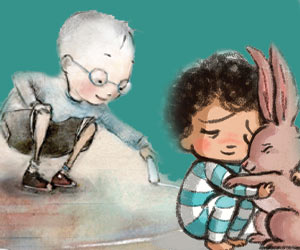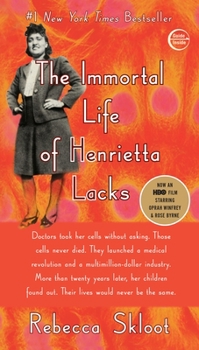The Immortal Life of Henrietta Lacks
Select Format
Select Condition 
Book Overview
HENRIETTA LACKS This description may be from another edition of this product.
Customer Reviews
One of the Books
This book should be required reading in school instead of Shakespear because it is relevant to this
Jaw dropping and eye opening
A True Heroine for Medical Science, but she and her family were never rewarded
Something every doctor and researcher should read
Thank you for this beautiful tribute to Henrietta Lacks
Absolutely superb
2010 Non-Fiction Award Winner?
The Immortal Life of Henrietta Lacks Mentions in Our Blog

Do you love immersing yourself in futuristic, boundary-pushing worlds? If you're always looking for your next sci-fi read, here are fourteen excellent, mind-bending novels that may not have come across your radar yet.

For many of us, 2020 has been a tough year. From the pandemic to natural disasters to divisive political battles, it has been one thing after another. Finding gratitude for the good things may feel harder than usual, but one thing that never fails to make us feel thankful is books!

This can be a rough time of year for many. Grief, loneliness, and scarcity are among the reasons people may feel particularly isolated and sad during the holidays. It's an opportunity to reflect on these difficulties and how we can help. Here are twelve books that offer perspectives on empathy and awareness.







